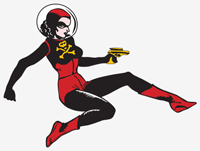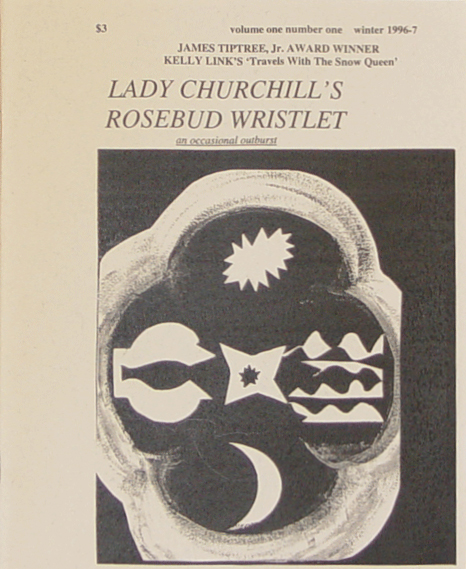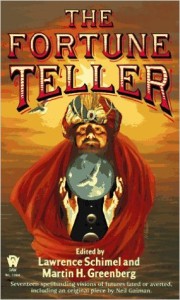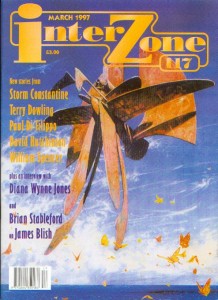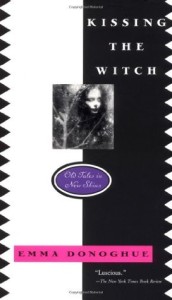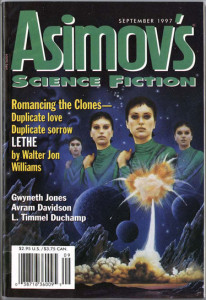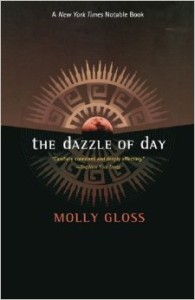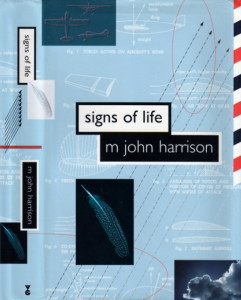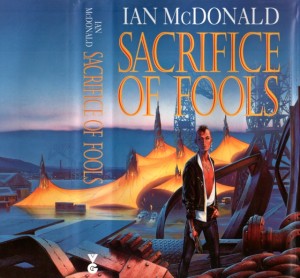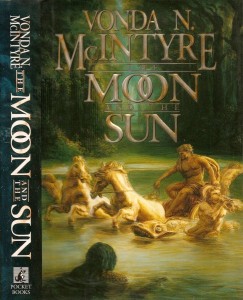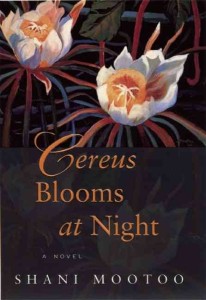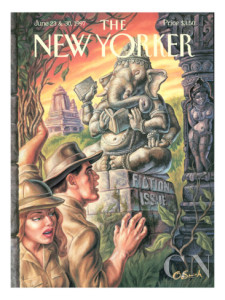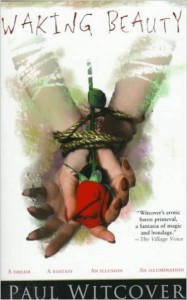The Otherwise Award is pleased to announce that the award ceremony for the 1997 Otherwise Award winner(s) has been held, and the winners have received their award and accolades.
Award Information
Conference Information
- Award Year: 1997
- Award Year Number: Year 7
- Conference: Readercon 10
- Date: 12-07-1998
- Location: Westborough, MA
Award Sections
Award Winners
The 1997 jury chose 2 works for the Otherwise Award.
Black Wine is a slippery book, neither science fiction nor fantasy; instead it stakes out territory all its own. It is an intricate, fierce and lyrical examination of gender and identity. Teeming with ideas made flesh, Black Wine gazes unflinching at the wonder and horror of humanity. — James Patrick Kelly In Black Wine, Candas Dorsey took on the whole question of gender, shook it out till it suited her, cut, stitched, and fitted till she came up with a wondrous garment I had never seen before. Then she showed me it was reversible and just as wondrous on the inside, which was now the outside. This is a book well worth reading and I hope lots and lots of people do. — Terry Garey This is a story that puts its arm around the reader and leads him back to places he’s been but hasn’t really seen. A clever, often funny, conflation of deconstructed fairy tales with a modern relationship going sour, it’s about a young woman’s journey through gender stereotypes to self-acceptance. Link makes us understand that, in this story, the traditional “happy ending” would be very silly indeed. — James Patrick KellyBlack Wine by Candas Jane Dorsey (Tor, 1997)
Work Information
Title: Black WineAuthor: Candas Jane DorseyPublisher:
Publisher Name: TorCountry: USYear: 1997Travels With The Snow Queen by Kelly Link (Small Beer Press, 1996)
Work Information
Title: Travels With The Snow QueenAuthor: Kelly LinkCollection:
Title: Lady Churchill's Rosebud Wristlet Volume 1, Number 1, winter 1996-7Editor: Gavin J. GrantPublisher:
Publisher Name: Small Beer PressCountry: USYear: 1996
Award Honor List
See full details about the 1997 Honor List
Thanks to Vonda N. McIntyre for researching publishers and publications.
The 1997 jury chose 12 works for the Honor List I liked the imagery, particularly the recurring and faintly threatening tube of red lipstick. The image of the unremarkable woman envying the glam one resonated. We’ve all been there in one way or the other. But at the end of the story, I’m not sure what I was supposed to have taken away from it. — Nalo Hopkinson “Oracle Lips” explores the idea that, just as the fashion and advertising industries tell us, makeup and accessories make the woman, and does so in the context of an original method of fortune-telling. — Jerry Kaufman I found myself uncomfortable with the way DiFilippo diddles so many genre icons in this gonzo alternate history, attributing to them (and Alice Sheldon especially) outrageous histories and cartoonish behaviors. But I wonder whether the point here is that this is the harvest we reap in a field that churns out alternate history anthologies by the yard. I had the sense that he was aiming this story at the Tiptree jury. Nice shot, Paul! — James Patrick Kelly Like some of my fellow jurors, I got the impression that this story was aimed and fired deliberately at the Tiptree Award. It’s abrasive and it’s presumptuous–and it’s well-written. I laughed out loud in parts. A bracing dissenting voice. It’s not about gender, it’s about our favorite writers who write about gender; a meta-fictive in-joke that skillfully parodies the writing styles of those authors. It lampoons the lives of very real people in ways that I found more cruel than pointed, and for that reason less effective as satire. — Nalo Hopkinson Like Angela Carter and A.S. Byatt before her, Emma Donoghue puts a distaff spin on traditional fairy tales. But Donoghue doesn’t deconstruct Perrault and the Brothers Grimm so much as she reconstructs them in a series of interlocking stories, letting the heroine of one tale grow into the villainess of the next, who then becomes the benign crone of the next, and so on. Her stories are ribald and often harsh in their assessments of male/female relations, and damning of the ways in which women–in fairy tales and real life–too often give in to what seems to be a preordained fate, rather than struggling for independence. Donoghue’s tales also have a bracingly, and unapologetic, gynocentrism: in *her book*, it’s the witch who gets the girl, not the prince. And Kissing the Witch makes a nice companion piece to Kelly Link’s revisionist “Travels With The Snow Queen.” — Elizabeth Hand Kissing the Witch took my normal expectations of fairy tales, un- normal as they are, and shook them around again. The writing was beautiful. — Terry Garey One of the great pleasures of this novelette presented as excerpts from a diary is the effortless way in which Duchamp recreates the Italy of 1629. This historicity helps put over the story of a young woman coming to understand her supernatural powers in the wake of an unhappy love affair. Duchamp convinces me that if witches existed, this is what they’d be like. — James Patrick Kelly So, how d’you suppose women treated yeast infections in the days before Canesten? Seems quite reasonable that the infestation could get so extreme that it would turn a woman raving mad. I had a sardonic giggle over this as one cause of women’s ‘shrewishness.’ I can’t speak for the historic accuracy of the story. I enjoyed it (in fact, I think I’ve enjoyed every story of Duchamp’s that I’ve ever read), though I found the healer too all- knowing and Isabetta’s conversion to wisdom and forgiveness a bit too pat. — Nalo Hopkinson The Dazzle of Day is a rigorous examination of a monoculture under mortal stress, as a rickety ship of Quaker colonists arrives at a planet that would seem to be inhospitable. Although not particularly flashy, this is a deep book. I was particularly taken by Gloss’s bold narrative strategy in opening and especially in closing. She delivers what seems to me to be exactly the right ending without telling me anything of what I thought I wanted to know. — James Patrick Kelly A spare, beautifully written, utterly haunting novel about the human desire for transcendence, and its limits. In the ruins of contemporary Europe, a young woman who longs to fly mutilates herself in a doomed effort to become more birdlike. A tormented con man endures the knowledge that the single moment of sexual and spiritual transcendence he experienced in his youth has destroyed his life. And the man who loves them both can do nothing to save them, or himself. There’s no false sense of redemption here, only the protagonist’s final realization that our struggle for meaning–however futile–may be all we have, and the only thing worth living (or dying) for. — Elizabeth Hand “Balinese Dancer” is an elliptical look at the end of the world as we know it. As human sexual differentiation erodes in the background, a well-realized couple works through their marital tensions in the foreground. A gender apocalypse is hinted at in this subtle and disturbing story. — James Patrick Kelly The opening line of this story continues to take my breath away, as do some of the author’s insights into human behavior. But ultimately the plot elements didn’t quite gel for me and the news that humanity is beginning to evolve beyond gender seemed more like a plot device than the topic which the story wanted to explore. Nevertheless a very readable story. — Nalo Hopkinson I was sorry to have finished Sacrifice Of Fools because it is such a great read. I like how McDonald has bent to police procedural to his devious ends. The familiarity of the mystery tropes helps us navigate through the strangeness of his alien Shians. I found the characters — human and Shian — complex and wonderfully unpredictable. I loved the way this book deals with the clash of cultures, so that its imaginary surface reflects and refracts real world flash points. And most of all, I like what this book is saying about the diversity and perversity of the human sexual response, especially in its often withering portrayal of the male id. — James Patrick Kelly Ian McDonald’s Sacrifice of Fools is a rough, scary book that looks at gender from a blue-collar futuristic point of view. If genderless aliens were to visit earth, this is exactly what might happen, right on the streets, right in your face. It should be read. — Terry Garey I read The Moon and the Sun with a delicious sense that I had just stepped off the alternate world platform and caught a train to another time and place. The two female protagonists are creatures misplaced out of their elements in ways not of their own choosing. McIntyre explores the meanings of alien and gender in a way I’ve not seen it done before. This is a sensual book rich in detail that kept me intrigued through the end. — Terry Garey The Moon and the Sun was made into a motion picture with Pierce Brosnan and Fan Bing-Bing in 2015. Cereus Blooms at Night offers superb characterizations of people we never see in the genre, each with stories we would have never thought to tell. Even though not particularly fantastic, Cereus is magical. — James Patrick Kelly My highest priority is this novel by Canadian Shani Mootoo. A Caribbean-based exploration of queerness, gender and preference written defiantly from within, given that in some Caribbean countries, being openly queer can invite societally condoned bashing. This novel is a radical act. It’s well-written and compelling. The invented tropical island of Lantanacamara is an evocative, faintly unreal setting that is clearly meant to echo aspects of Trinidad. A gay male nurse with a fondness for women’s clothing is the buffoon of his community, until he’s given the care of an old mad woman who may or may not have committed a horrible crime. A love story in which neither gender nor sexual preference are absolute. The SF content of Cereus Blooms at Night is nebulous, but it is in every way a book most worth reading. — Nalo Hopkinson Brilliant writing that pointedly references and critiques the practice of suttee and a system in which women are chattel. Good to read writing from within a particular culture, albeit from a privileged place in that culture. I wasn’t keen on a subtext that seemed to pit the “primitive” East against the “enlightened” West, but that may be just my reading of it. I remain blown away by the craft and style. — Nalo Hopkinson Waking Beauty is like a poke in the soul with a sharp stick, which is one reason why I’ll never forget it. In terms of ingenious world-building, I don’t think I’ve read anything better this year. Waking Beauty has a labyrinthine plot, but it certainly comes together enough to satisfy this reader. Its obsessions are its own; they made me feel exceedingly icky without making me feel exploited. As to whether it’s misogynist, of course the Hierarchate is misogynist, in the same way that the state of The Handmaid’s Tale is misogynist. But so what? The author’s intentions are always between the lines in dystopian novels. — James Patrick KellyThe Oracle Lips, Storm Constantine (DAW Books, 1997)
Alice, Alfie, Ted and the Aliens, Paul Di Filippo
Kissing the Witch: Old Tales in New Skins, Emma Donoghue (Joanna Cotler Books/Harper Collins, 1997)
The Apprenticeship of Isabetta di Pietro Cavazzi, L. Timmel Duchamp
The Dazzle of Day, Molly Gloss (Tor, 1997)
Signs of Life, M. John Harrison (Gollancz, U.K., 1997)
Balinese Dancer, Gwyneth Jones
Sacrifice of Fools, Ian McDonald (Victor Gollancz, U.K., 1997)
The Moon and the Sun, Vonda N. McIntyre (Pocket Books, 1997)
Cereus Blooms at Night, Shani Mootoo (Press Gang Publishers, 1996)
The Firebird's Nest, Salman Rushdie
Waking Beauty, Paul Witcover (Harper Prism, 1997)
Jurors
- Terry Garey (chair)
- Elizabeth Hand
- Nalo Hopkinson
- Jerry Kaufman
- James Patrick Kelly
Award Ceremony
See full details about the 1997 Ceremony
The 1997 Otherwise Award was given to Candas Jane Dorsey and Kelly Link at Readercon 10, July 12, 1997, in Westborough, Massachusetts.
